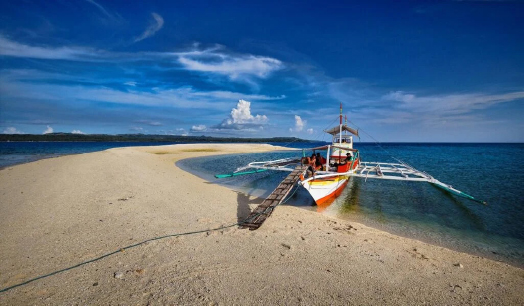
TACLOBAN CITY – Oceana Philippines has urged President Ferdinand Marcos Jr. to sign the Panaon Island Protected Seascape (PIPS) bill into law, stressing that the measure is critical to securing food security, marine biodiversity, and sustainable livelihoods for the people of Southern Leyte.
“For generations, the communities of Panaon Island have relied on the sea for food, income, and cultural identity. Protecting this marine ecosystem ensures that its resources will continue to sustain present and future generations,” said Von Hernandez, Oceana’s Vice President, in a statement.
Hernandez warned that dwindling fish stocks, overfishing, and the impacts of climate change have made conservation urgent.
“We are optimistic about the benefits that protecting Panaon Island will bring to its local communities. This law will open a new path towards sustainability through science-backed livelihood alternatives that reduce pressure on the ocean while creating new economic opportunities,” he added.
While awaiting the President’s signature, Oceana said it has been working closely with national and local governments to consult communities in Panaon. This process aims to finalize the PIPS Management Plan, which will serve as the blueprint for the island’s conservation and resource use.
According to Oceana, the plan reflects insights from fishers, local leaders, and stakeholders to ensure that conservation efforts align with community needs.
Local officials have echoed Oceana’s call, citing the need to curb illegal fishing and encroachment from outsiders.
“Our appeal to the Honorable President is to sign the bill as soon as possible so that our seas and resources are protected and enforcement is strengthened against illegal fishers,” said Mayor Ricarte Estrella of Pintuyan, one of the four municipalities in Panaon Island.
He revealed that last year, three fishers from outside the province were apprehended for illegal activities in their waters, highlighting the urgent need for legal protection.
Oceana noted that the proposed PIPS framework complements Southern Leyte’s shift to a Blue Economy, which prioritizes the sustainable use of marine resources while preserving biodiversity. This strategy is being advanced by the Department of Science and Technology (DOST)–Southern Leyte in partnership with local governments, science institutions, and fisherfolk groups.
Among the alternative livelihoods being introduced are sea cucumber ranching, sandfish cultivation in Liloan and San Francisco, and squid processing in Pintuyan. These projects form part of the province’s broader SPEED-SL (Science and Technology Programs to Enhance Economic Development of Southern Leyte) agenda.
“Panaon Island is living proof that sustainable livelihoods and healthy marine ecosystems can go hand in hand. By equipping communities with science-based alternatives to their main livelihoods, we not only protect biodiversity but also empower people to thrive without harming the very ecosystems they depend on,” Hernandez said.
Once signed into law, the PIPS bill will establish a legal framework for long-term conservation; create sustainable use zones and community-based resource management; strengthen enforcement against illegal fishing; and institutionalize support for alternative livelihoods.
“This legislation is not just about conservation—it is about securing the future of Panaon Island and demonstrating how environmental protection can drive progress and resilience,” Oceana emphasized.
(JOEY A. GABIETA)



